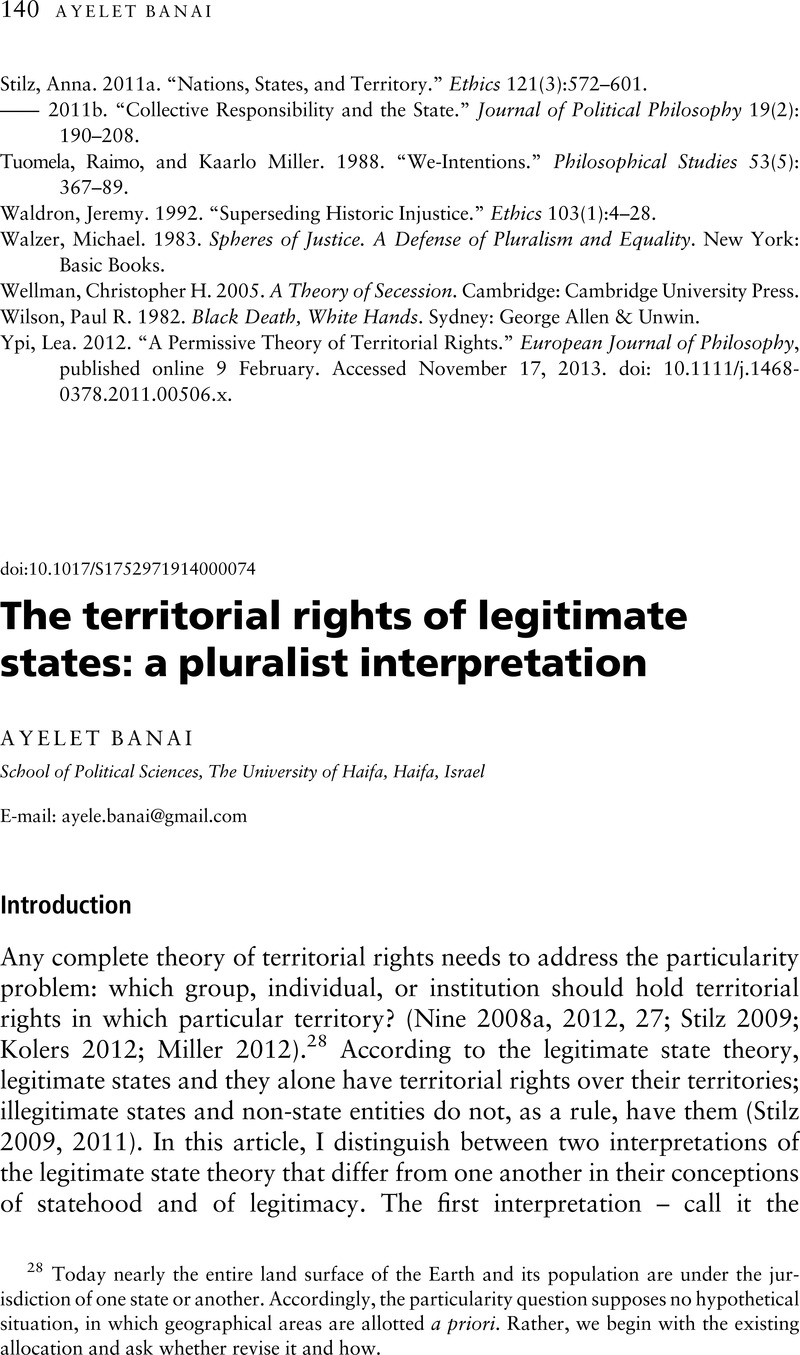Crossref Citations
This article has been cited by the following publications. This list is generated based on data provided by Crossref.
Banai, Ayelet
2016.
Sovereignty over natural resources and its implications for climate justice.
WIREs Climate Change,
Vol. 7,
Issue. 2,
p.
238.
Griffiths, Ryan D.
2017.
Admission to the sovereignty club: the past, present, and future of the international recognition regime.
Territory, Politics, Governance,
Vol. 5,
Issue. 2,
p.
177.
Kaya, Zeynep N.
2020.
Mapping Kurdistan.
Moore, Margaret
2020.
Walzer and War.
p.
31.



